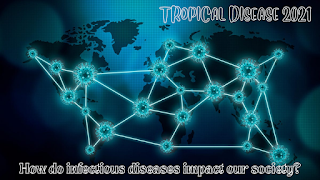Is influence caused by a virus?

The influenza virus infects the nose, throat, and perhaps the lungs, causing a contagious respiratory infection . A, B, C, and D are the four kinds of influenza viruses. Human influenza A and B viruses cause seasonal epidemics of illness (known as flu season) in the United States almost every winter. The only influenza viruses that have been known to cause pandemics, or widespread flu outbreaks, are influenza A viruses. Despite the fact that more than 100 viruses can cause a cold, only influenza virus types A, B, and C cause the flu. Viruses of type A and B produce seasonal epidemics. The flu is caused by influenza viruses invading the nose, throat, and lungs. When patients with the flu cough, sneeze, or talk, virus-laden droplets are thrown into the air, potentially landing in the mouths or nostrils of others around. The influenza virus affects your respiratory system, which includes your nose, throat, and lungs. Despite the fact that influenza is commonly referred to as "th...

